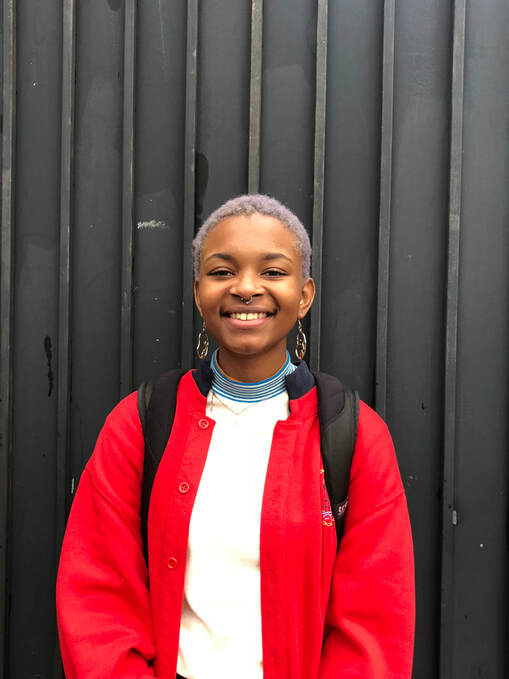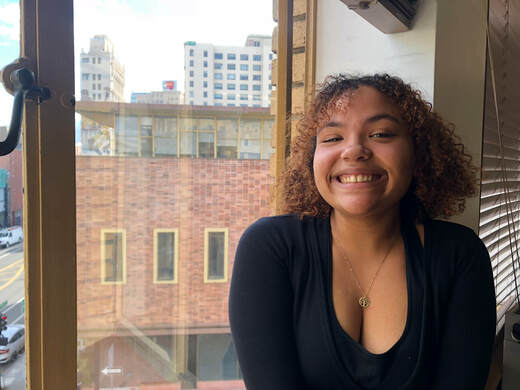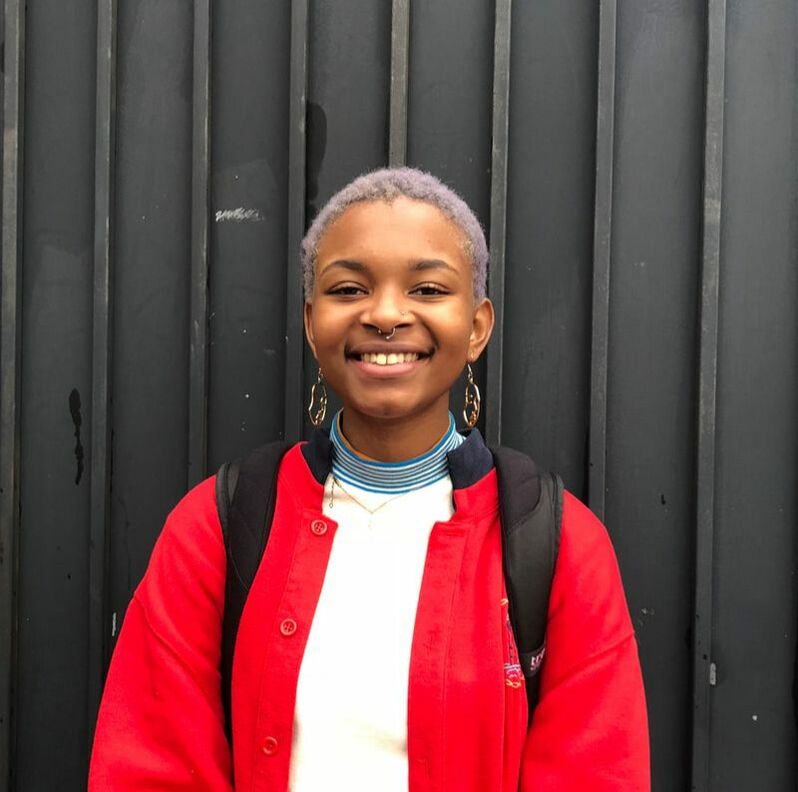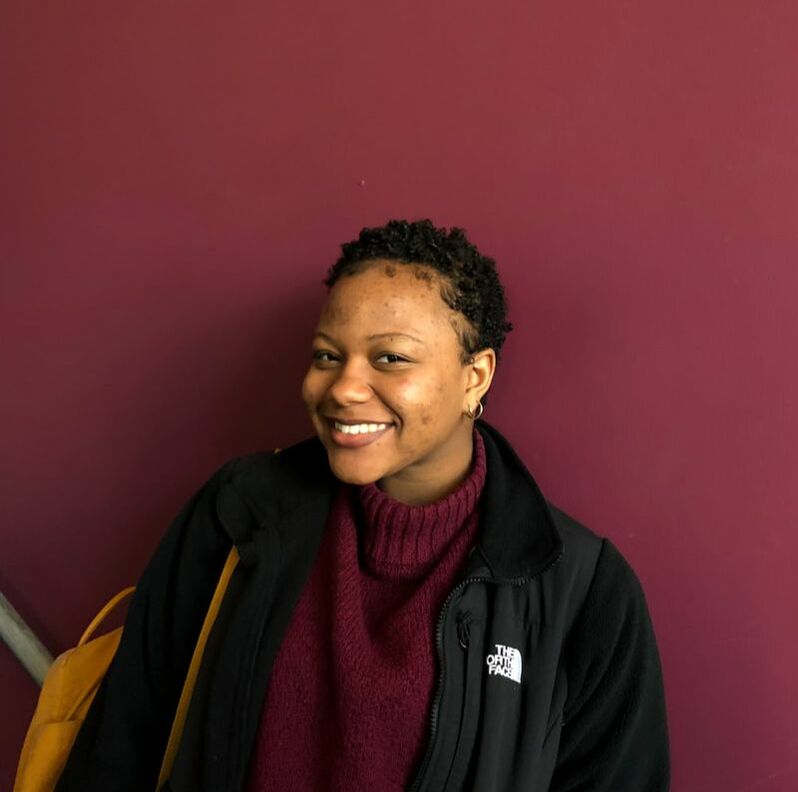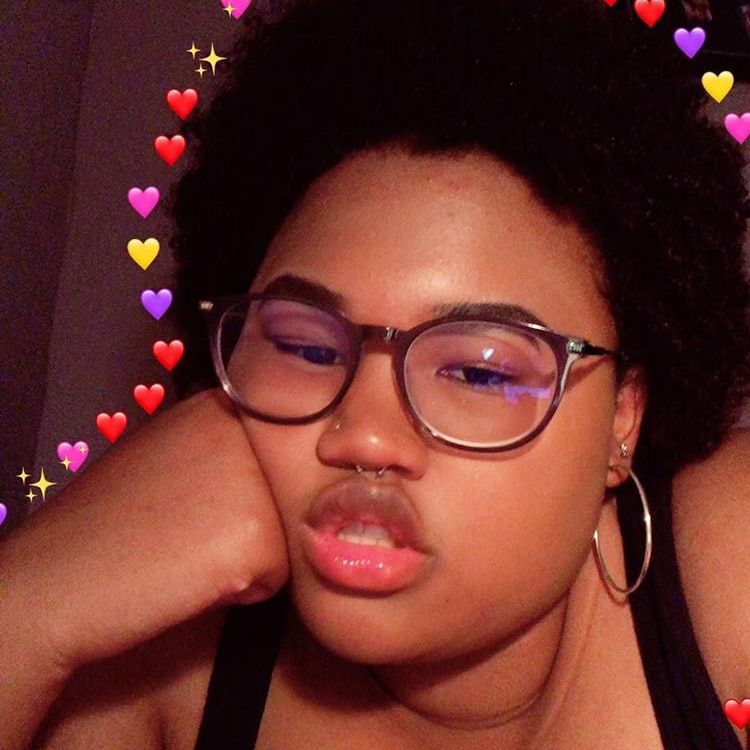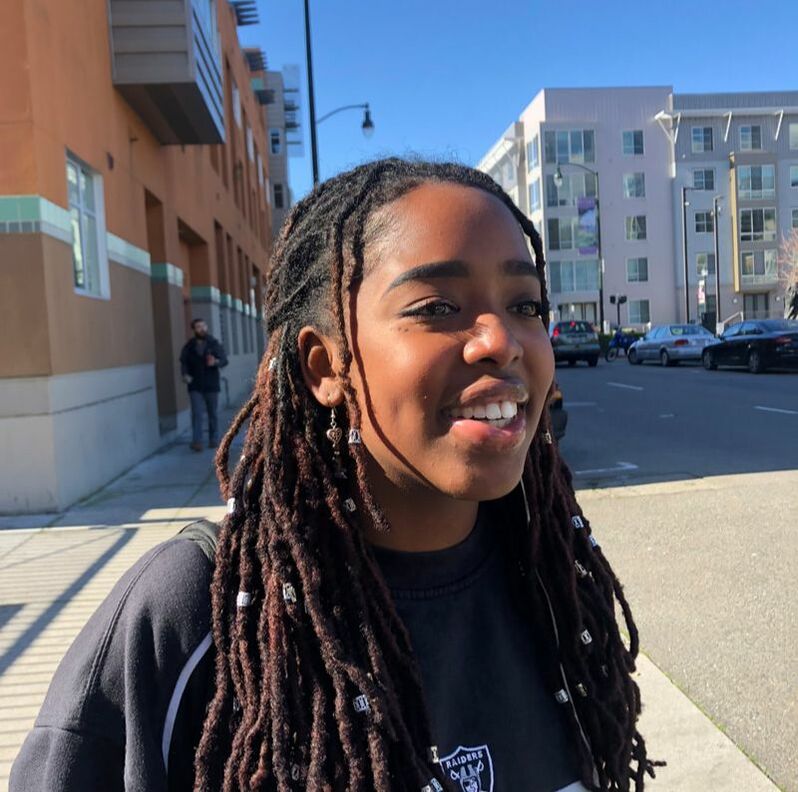"Though these girls can’t speak for the general population of Black girls everywhere, their responses towards these questions still, without a doubt, represent what a lot of Black girls deal with in their everyday life. Their hair being a barrier within itself." - Avynn Stanley
During the month of February I asked five Black girls a series of questions pertaining to their hair. Though they all answered in a multitude of ways, the theme of feeling misrepresented was still prevalent in each response. Though these girls can’t speak for the general population of Black girls everywhere, their responses towards these question still, without a doubt, represent what a lot of Black girls deal with in their everyday life. Their hair being a barrier within itself.
I asked the following questions:
I asked the following questions:
- Name,Pronouns,Age
- What hair type do you have?
- Is your hair a significant part of your identity?
- Has your hair ever affected you in a negative way? Meaning, have you ever felt negatively towards your hair?
- What inspired you to cut, loc,straighten,or wear your hair in its natural state? Was there an inspiration? Was there thought behind it? Did you have a choice?
- If you weren’t natural before, what made you decide to be?
- How, if at all, does the media affect the way you feel about your hair as a person of color, and a person who identifies as female?
- Any additional comments/ quotes appreciated
Their Responses:
Leila, She/Her,16, 3c hair type
- Yes, my hair is an integral part of my identity
- Yes I hated my hair for so long,probably until I was thirteen or so. I grew up with Black women with natural hair in my life, so I had no understanding of it. I felt ostracized because people would pull at my hair,stick things in it,talk about it and I wanted this easy white straight girl hair that surrounded me. I wore my hair up,dry, with no product and Pantene shampoo and conditioner until seventh grade. My [Black] friend turned to me and said “you gotta stop doing your hair like that it’s white you’re black Leila,” and forced me to confront not only my hatred of my hair but also this internalized anti-blackness. She would put my hair in twists and helped me feel like my hair was normal. Not having access to products that are made for Black hair made me feel like my hair was wrong.
- I mostly had my hair natural (though I brushed it when it was dry and didn’t take care of it), except everyone around me kept wanting me to straighten it. So, I spent about a year straightening parts of it until it started falling out. It was this friend that made me commit to being natural completely especially because I saw how beautiful her natural hair was and how much she loved it.
- I didn’t know that my hair could be beautiful, because I never saw anyone else loving and appreciating their natural hair. Part of this is having a white mother and going to school with a lot of white kids. Another part is only seeing Black women in the media with straight hair which is absolutely their choice,but left little representation of other options. Also, there’s a lot of advertising for beauty products for straight hair, but not Black hair, so I felt othered in some ways from that too.
- If I hadn’t found communities of other Black women to participate in a collective love and appreciation of our hair, I believe I would have continued to not only hate my hair,but fall into the construct that tells Black women we aren’t beautiful or normal.
Marilyn, She/her,16, 4c hair type
- I cut my hair because I grew tired of never feeling satisfied with the way the hair looked and I heard a lot of people saying that cutting their hair helped them feel more confident so I just went for it.
- Always been natural.
- The media used to heavily influence the way I felt about my hair, and now that I have close to no hair it is easier to ignore it. But back when my hair was longer, I would not only see a lack of women with kinky hair,but the kinky hair I did see were very loose curls that mostly biracial people have and that still frustrates me so much.
Heaven,She/her,17, 4b hair type
- During my childhood and especially going to primarily white schools,I used to hate having kinky hair. I had always wished it was curlier,longer,straight,everything it wasn't and that took a toll on my self-esteem at a young age. Once old enough,I began straightening it.
- The biggest thing that prompted me to chop all of my hair off had been my desire to let go of the person I’ve always felt obligated to be for the sake of surviving in society. I wanted to prove to myself that I would be okay if I lived for myself, as myself for a change--- something I’ve always had a really profound fear of doing. So, a few days before my 17th birthday, I finally cut it after a while of wanting to.
- The media definitely used to negatively affect my self-image,especially as a child because in those years mainstream media wasn’t as inclusive when it came to Black women’s different curl patterns, or natural hair in general as it is today.
Akaysha, She/her,17, 3c or 4a hair type
- It is pretty significant to me but I don't know about my identity. My hair has always went with what was going on at the time so it was never a constant. For example, in middle school I was closed off and extremely shy so my hair remained in a tight bun and no one ever saw it not in that. As I moved on to high school I started dyeing my hair a ton, like how I was experimenting with everything else.
- I used to get frustrated with taking care of my hair. I grew up in predominantly white schools and my friends never had to wear scarves to bed or use a whole weekend on their hair or wrap it up in the pool,etc. Though I never wanted to change it. I may have become impatient but I loved having curls and coils.
- Around the beginning of freshman year I had reached one of my lowest points. I had decided I’d take my life after school and during a therapy session I let it slip that that’s what I was planning to do and I was immediately hospitalized. But as I sat in small rooms for hours or took my vitals and medication, I began thinking too much about who I was and what I was doing. So as soon as I got out I cut my hair off just like my grandmothers and began dating. I realized that I wasn’t living I was existing. I hated everything I was. So I decided to start fresh and cut all my damaged hair.
- In the media, even as a kid I’d see that if you were a woman you had long,silky hair. I never had long straight hair down my back. I remember being in 5th grade and on a field trip we took Bart. And as the train arrives there’s always a big gust of wind. Now all the other girls’ hair blew back but mine always stayed put. Someone pointed it out and then some began to laugh. Asking why it did that. Was it dirty? I felt horrible just because my hair didn’t fly away as much as the white girls’ did. I still laugh at when I first cut it. Old ladies would call me a boy. How such a small change could do so many things. When girls with straight hair get a buzz cut it’s “empowering” and “revolutionary” but when I chop off a good four inches its “ruining my hair” or “some sort of angry lesbian hoorah.” Or how my hair “couldn’t” be professional. I could go on.
Kenzi, She/her,17, 4c hair type
- My hair pretty much defines my identity to others. It’s always been “Kenzi is the one with the locs.” To me, my hair has been a significant part of the acceptance of not only myself as an individual but my culture and background. It makes me stand out from people around and it made me REALLY see myself as an individual in this massive world.
- My hair has affected me because I grew up in a non-black community with people who had straight hair and that made me want straight hair. Seeing that made me think something was wrong with my hair because it was really curly. I always wanted to straighten it and take it out of locs because it didn’t look like anyone else’s.
- When I was four my mom decided to loc my hair. Her decision was made because it was difficult to do my hair (I was very tender- headed). I didn’t have a choice in the matter but it did make doing my hair more pleasant for her and myself. I thank her for that.
- Media actually inspires me a lot when it comes to my hair. Watching videos and looking at pictures helps me with finding ways to maintain my hair and keep it healthy. It helps me find new products and styles that people with locs recommend.
Many Black girls, on a globe scale, can concur to these experiences without a doubt. Growing up with a lack of representation being presented to you, especially in a world where your existence feels like a burden is a predicament many Black girls face. Interviewing these girls and receiving the responses I did made me realize just how important our hair is.
